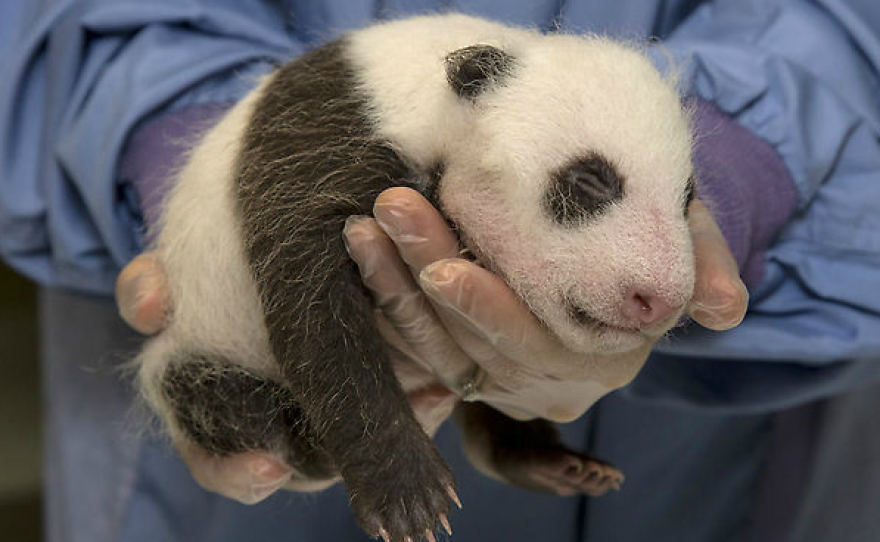San Diego Zoo officials are offering condolences to the staff at the National Zoo in Washington, D.C., where a week-old giant panda cub died unexpectedly over the weekend.
The birth of the cub, which weighed only four ounces, was a surprise to zookeepers on Sept. 16, according to National Zoo. The cub appeared to be in good health, though its 14-year-old mother has a history of five failed pregnancies, zoo officials said. The cause of death was under investigation.
A necropsy was performed Sunday afternoon, National Zoo Chief Veterinarian Dr. Suzan Murray told reporters. The results were not immediately released.
"Such sad news. Our sympathies to all at National Zoo,'' tweeted the San Diego Zoo Giant Panda Team.
San Diego and National are among four U.S. zoos that participate in giant panda programs in cooperation with the Chinese government. For hefty fees, China loans the critically endangered species to the U.S. zoos for research purposes.
Experts estimated there are only around 1,600 of the bamboo-eating bears left in the wild today, largely due to habitat encroachment. When a panda is born at one of the four U.S. zoos, the Chinese government has the option of recalling the animal to China upon its third birthday.
A total of six panda cubs have been born at the San Diego Zoo since 1999, including a yet-to-be-named male born eight weeks ago.
Today marks the final day naming suggestions will be accepted for the cub born July 29 to mother Bai Yun and father Gao Gao. The cub is almost five pounds and 16 inches long.
All naming suggestions for the cub in San Diego must be submitted in Chinese pinyin, which is the official system to transcribe Chinese characters into Latin script. The meaning of the submission must also be included.
Naming suggestions are being accepted via sandiegozooglobal.org/panda-name. Zoo officials said they will choose their favorites among the submissions and put the top few to a public vote next month. Submission have been accepted since last Monday.
The winning name is expected to be announced in mid-November, once the cub turns 100 days old per Chinese tradition.





